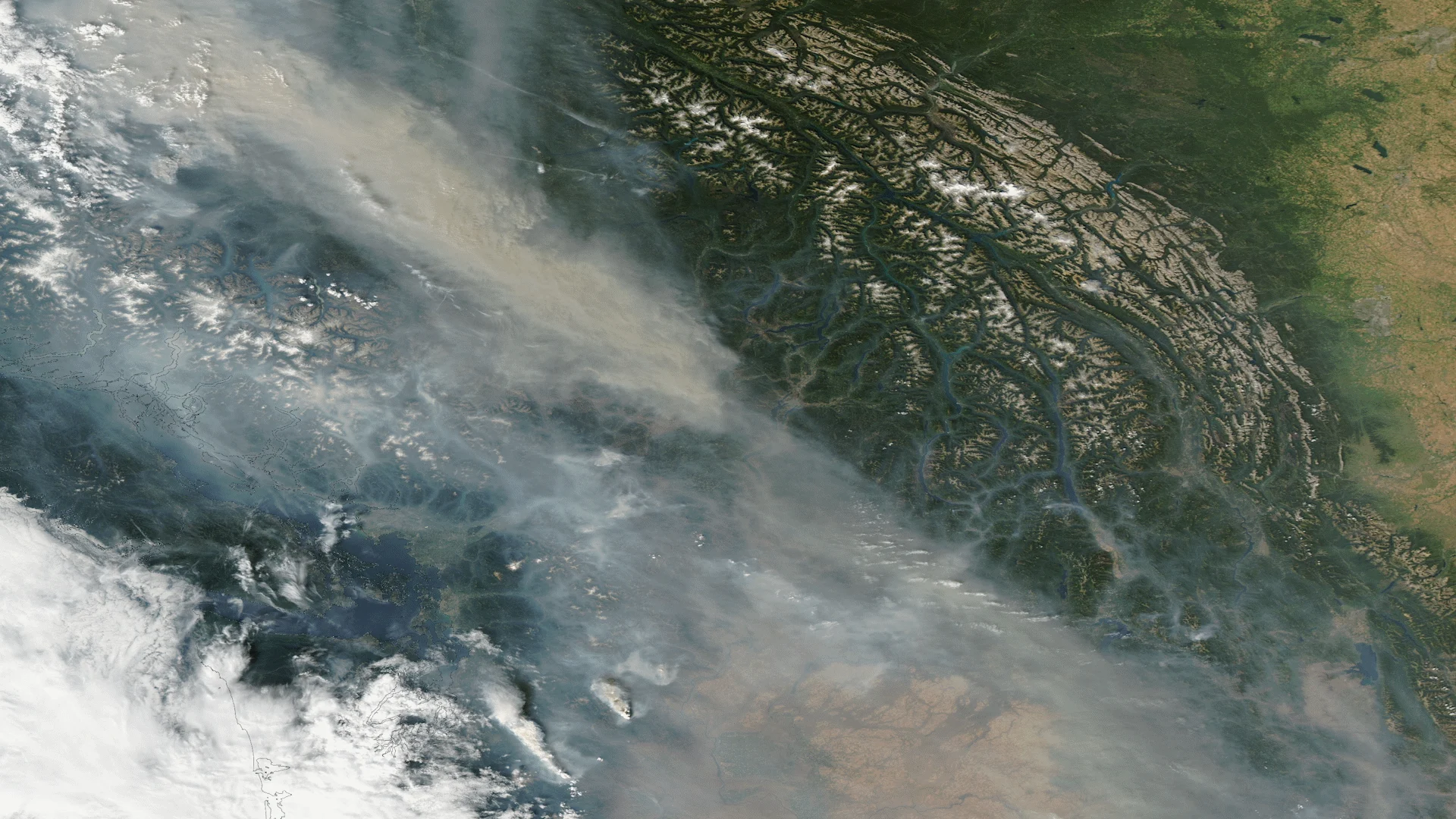
Smoke and storms persist in B.C. and Alberta into Monday
A few of the storms could be severe, and lightning could spark additional wildfires across the region
Wildfire smoke and scattered thunderstorms have been the story across Western Canada this weekend, and the trend will continue into the beginning of the workweek.
Folks across the region will have to stay alert for lightning strikes that could spark additional wildfires.
RELATED: Vancouver broke an unexpected weather record this week

British Columbia and Alberta combined have seen more than 1.4 million hectares of land burned so far this year, which represents about 17 per cent of Canada’s total land area burned in 2025.
The largest fires as of Sunday were all in British Columbia. The Itcha Lake fire has burned just over 40,000 hectares so far, while the Mine Creek blaze had consumed around 3,000 hectares of land. These are in addition to numerous smaller fires throughout the region.

Heavy smoke from ongoing fires has been a significant hazard for much of Western Canada in recent days, with many communities seeing air quality health indices reach 10 at times.
Smoke will continue to pose a hazard from B.C.’s Interior eastward into Alberta during the day Monday. While fresher winds bring Vancouver a break, communities such as Prince George and Lethbridge are on track to see unhealthy to hazardous air quality to start the week.

We’ll also see the risk for thunderstorms continue on Monday as a weak upper-level disturbance sneaks through the region.
In addition to the risk for dry lightning, the strongest storms could pose a threat for strong wind gusts and large hail.
Temperatures will remain above seasonal through the Interior valleys and across a wide swath of Alberta during the week ahead. Readings in northern B.C. and northern Alberta could run more than 10 degrees above seasonal as the stubborn ridge locks into place.
Header image of wildfire smoke in B.C. and Alberta courtesy of NOAA/NASA.
Stay with The Weather Network for all the latest on conditions across Western Canada.
